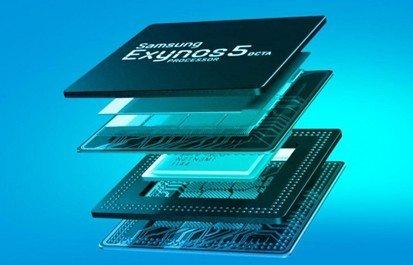
In people's minds, multi-core processors seem to always be the nemesis of battery life, so consumers are uncertain between high efficiency and low energy consumption. However, in an interview recently, ARM chief mobile strategist said that the new eight-core processor using BIG.little technology is actually more power-efficient.
When purchasing a PC, do you really "need" quad-core processors? Have you ever thought of buying an eight-core Windows PC? Multi-core technology came to the PC industry and it took more than 10 years. However, the mobile processor in our mobile phone has entered the multi-core era and it only took 3 years. In 2010, the first dual-core mobile processor was introduced, and Samsung’s international version of the Galaxy S4 now uses eight-core processors. But does our mobile device really need so many cores? Is this a show?
It seems that anyone can understand that more kernels mean higher energy consumption. The problem is that with dual-core, quad-core, and eight-core processors, smart phones require longer battery life. Unlike desktop PCs, if a mobile phone fails to charge for one day on a single charge, no user will buy it. In general, the more powerful the computer's central processor and the more cores, the worse the battery performance will be and the device will be hotter. Smart phones need to be more compact, but also the energy of the battery is distributed to wireless connections, screen-powered, multi-core processors, which has been very difficult.
So is it wise to double the number of mobile chip cores? During the interview with ARM, the company pointed out that the eight-core processor not only can work normally, but also improves in many aspects.
ARM claims that the design of the new eight-core processor is more efficient than the previous ARM Cortex quad-core processor (as well as Qualcomm's Snapdragon processor). This also means that the use of eight-core technology, the international version of the Galaxy S4, battery life is better than the US version.
According to ARM, on this point, the problem is not the actual number of cores, but the way they are used and optimized in smart phones. James Bruce, ARM's chief mobile strategist, said that the new eight-core design has "small cores and large cores," which also makes smartphones more efficient. This technology, called BIG.little, is the focus of ARM when it comes to building next-generation processors.
When talking about the design decision of the eight-core system, Bruce said: "Our approach is to choose different size processors when different performance is needed." It is reported that this new eight-core processor can be smarter. Dealing with the daily activities that smart phones are experiencing also makes them more effective than their predecessors.
The new Big.little design does not put 8 traditional cores on a single processor. Instead, it uses two processors - one with 4 "small cores" and the other with 4 "large cores". †Each has its own independent speed and performance. By deciding which core to use, the eight-core Big.little processor is more efficient than the old smartphone CPU, which has only one or two cores.
When a non-BIG.little smartphone wants to open a webpage, it needs to use all four cores, handle web pages at different speeds, load content, support background processes, avoid user experience slowdown, or affect battery life.
The new eight-core system, if only using a simple eight-core design, can complete the task, but in fact, using eight conventional cores and changing the speed in real time is not very effective. In contrast, the BIG.little system can determine which kernel should be used for each task: small or large. Tasks like opening feature-rich web pages need to be handled with a large kernel; while small kernels can handle simpler tasks such as checking emails or answering calls. Compared to the intensive tasks handled by large cores, these small cores consume less energy, which also allows smart phones to handle simple tasks without wasting power and battery life.
If you play with the new version of Modern Combat or other crazy intensive missions, battery life will actually be shorter than traditional quad-core processors, but that's because you're letting your mobile phone in the limit jobs. The new BIG.little processor has a very different way of doing things, and it is indeed more efficient for the average user.
But how effective can the Galaxy S4 with an eight-core processor compare to the Galaxy S3 with a quad-core processor? According to Bruce, the use of eight-core ARM processor equipment, battery life can be increased by 50% to 70%, thanks to BIG.little design.
This new design is of great benefit to ARM, and it is also true for other mobile companies that use ARM processors. But for Intel, this is obviously not a good news. The chip maker has often been tempted by the high power consumption of the processor. Although Intel does not show high-profile smartphones and tablet processors, the new Haswell chip and Clovertrail+ will both come soon. Haswell is seen as an opportunity for Intel to prove value and a shame in the mobile space.
Currently, the new eight-core chip is only used on the international version of the Galaxy S4, but it is said that this processor will also be used for the Galaxy Note 3, or at the end of this year or early 2014, appear on more devices .
Although the concept of multi-core will still scare off many battery enthusiasts, everything that ARM has demonstrated seems to indicate that multi-core is indeed the right direction. Perhaps an eight-core phone is just the beginning. At this speed, perhaps next year, we will explain the advantages of the sixteen-core processor.
Envelope Folding Machine,Envelope Opener Machine,Envelope Stuffing Machine,Enveloping Machine
Zhijiang BSL battery technology service company , https://www.bslbatteryservice.com